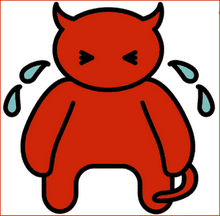 Arctic Monkeys
Arctic MonkeysFavourite Worst Nightmare
[Rock]
When Arctic Monkeys took over the world with the Best Album of all Time in early 2006, I must admit it took me by surprise; the brand of stripped-down, up-tempo indie rock ’n’ roll and trite social commentary practiced in their early singles certainly didn’t bode well for a great album. Those in the know revealed all, however, letting us all in on the big secret that, in fact, Whatever People Say I Am, That’s What I’m Not was a cracking first try. Despite their record only featuring a handful of solid tunes, team Arctic Monkeys (consisting of the band members, their record label, the NME, Radio 1 and the most expensive non-existent hype machine ever built) made sure everyone knew Whatever... was a winner. Dissenting voices were silenced, skeptical reviews were swept under the carpet and negative media coverage was simply not permitted. And people say Kim Jong-Il is bad.
A little over a year later and they’re back with Favourite Worst Nightmare: a different, more mature, considered, polished, wide-reaching and inward-looking follow-up, surely? Well...no, not exactly. It’s still the same Monkeys we’ve been told to love, only this time with slightly better songs and a slightly stronger dose of the self-important machismo and blasé chauvinism so beloved of their debut. Jeremy Clarkson, eat your heart out.
Of the twelve songs on offer here, two are great, four satisfy and the rest should be condemned to the fiery depths of hell. So, while they’ve managed to double their previous success rate (only ‘When the Sun Goes Down’ stood out on Whatever...), the saving graces of being naïve, young, poor and misguided are unfortunately no longer on hand to assist.
Starting at the top, ‘Do Me a Favour’ is a cracking slower number where Alex Turner - for once not in his guise as a wannabe stand-up - muses on a previous relationship. “As she walked away / Well her shoes were untied / And the eyes were all red / You could see that we’d cried” laments the initially regretful frontman over a gentle guitar line, appreciating the smaller details during a short-lived reprise. The rolling drums kick in again before too long, though, allowing the song to resume its sorrowful tumble. The real high point comes two minutes in, however, with a striking change of gear as the mood becomes darker and the music heavier. Turner then reconsiders his position with the thought that “To tear apart the ties that bind / Perhaps ‘fuck off’ might be too kind”. Damn right.
‘Old Yellow Bricks’ is the other highlight, essentially a Long Blondes song for ninety seconds with its insistent drum beat and single note guitar line. “You can’t kid us and you couldn’t trick anyone / Houdini? Love, you don’t know what you’re running from” is the standout line, a rare example of Turner’s occasionally brilliant wit. The latter half of the song features some of the only experimental moments of the album as the Monkeys show some great musical chemistry, perhaps best characterized by the commendable incorporation of the Knight Rider melody into a truly hair-raising riff.
Of the numbers worth saving, lead single ‘Brianstorm’ is the best of the bunch: a funky enough slice of pure aggression that unfortunately thinks it’s a lot funnier than it actually is. Elsewhere, ‘Fluorescent Adolescent’ is a charming comment on getting old (“Discarded all the naughty nights for niceness / Landed in quite a common crisis”), though it does outstay its welcome. Eighth song ‘This House is a Circus’, in spite of being Monkeys-by-numbers for the most part, can’t help but raise a smile with the line “This house is a circus / Berserk as fuck”, while ‘If You Were There, Beware’, despite its terrible title, offers four and a half above average, musically progressive minutes which stand in stark contrast to the majority of Favourite Worst Nightmare.
The rest of the album ranges from inoffensively tedious guitar rock filler (‘The Bad Thing’, ‘Balaclava’, ‘D is for Dangerous’) to criminally poor, duration-lengthening ballads conveniently placed at the end of each half (‘Only Ones Who Know’, ‘505’) to the abomination against humankind that is ‘Teddy Picker’. “Let’s have a game on the teddy picker / Not quick enough can I have it quicker / Already thick can you get any thicker?” rails Turner against the ambitionless working classes. “Who’d want to be men of the people / When there’s people like you?” he continues, fist pumping in self-righteous indignation. Chances are, if the previous two lines haven’t got you seething, you’ll love the song’s no nonsense, up-tempo chug. However, for those of us who didn’t think ‘chav’ bashing was funny when it was trendy five years ago, ‘Teddy Picker’ should induce a snort or two of disgust. Sorry Alex, but any credentials the Monkeys had as a people’s band just disappeared out the window faster than you can say, “Two Big Macs please.”
All in all, then, Artic Monkeys have produced a predictably satisfactory second album. The music’s still OK, the lyrics are still smarmily unfunny (for the most part) and it’ll sell millions. There’s a lesson to be learned here, surely? 52






